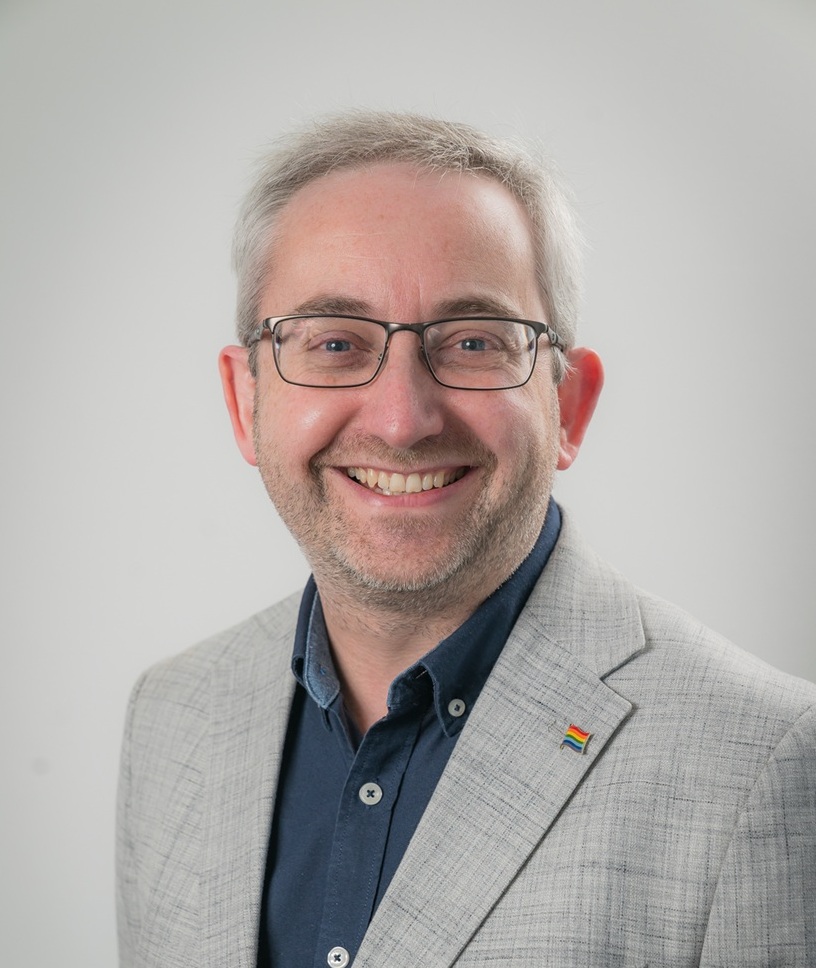LGBT+ History Month, the GOsC and me
1 February 2022
February is LGBT+ History Month, which aims to raise awareness of, and combat prejudice against, the LGBT+ community, while celebrating its achievement and diversity and making the community more visible. In this blog, Matthew reflects on what LGBT+ History Month means to him and the work of the GOsC.
I’ll start by making a confession. As I stared at the blank Word document in front of me, I wasn’t completely sure in which direction I intended to take this blog. In fact, as I started to type, I still didn’t really know what was going to find its way onto paper. So I wrote down some questions to try to help me.
- How personal did I want to make this blog?
- Would I be able to do justice to a matter which is important to me?
- Will it make any difference if the blog is written or not?
And that’s when I think the penny dropped: just be your true self. Which is easy for me because I have a supportive and loving family, a close-knit set of friends, and a working environment where I have never felt the need to be anyone other than the real me.
As a gay man, at the start of this year’s LGBT+ History Month, I realise how lucky I am, for not everyone has that privilege or luxury. In fact, 2021 is now on record as being the deadliest for transgender people murdered around the world; numbers of sexual orientation hate crimes were the highest recorded and violent homophobic hate crime recorded in the UK between January and August 2021 was almost equal to the whole of 2019.
We still have a long way to go.
But, and I always try to be a glass-half-full person, we have come such a long way.
When I was a child growing up in the 1980s, the term ‘gay’ was a slur, often used in the playground and targeted to cause hurt. But now we have a generation of young adults who are much more aware of the issues around them and who are willing to call out inappropriate behaviour and language. This gives me hope for the future.
Interestingly though, name calling persists. The term ‘woke’ gets banded about, but if the definition of being woke means to have an awareness of, and being actively attentive to, important facts especially around issues of social and racial justice, then I can think of far worse things to be!
So LGBT+ History Month is an important event, which emerged in the wake of the abolition of Section 28 in 2003 (for those who don’t remember, Section 28 of the Local Government Act 1988 prohibited ‘the promotion of homosexuality’ by local authorities).
LGBT+ History Month allows us to look back and remember our history and how we got rights. Homosexuality was decriminalised in 1967 – only 55 years ago.
LGBT+ History Month allows us to reclaim the history we were never taught. I remember reading in a blog from Mark Stobbs, of the Professional Standards Authority for Health and Social Care, how 75% of Shakespeare’s sonnets are addressed to a young man – I never knew.
And LGBT+ History Month allows us to realise how our own stories have evolved and changed over the years. If you had told me that when I was a young gay man and felt worried about raising the topic with my parents (how silly I was to feel that way in hindsight), that just before Christmas I would be sitting down with them to watch the final of Strictly Come Dancing and sharing an emotional moment as we watched the beautiful dancing between finalists John Waite and Johannes Radebe, I am not sure I would have believed it possible. But it was; it happened; and I am grateful to have shared that moment with them.
And that makes me realise even more that visibility matters. So when I wrote those questions to myself at the start of the blog – how personal do I want to make this blog? Will it make any difference if the blog is written or not? The answer is a resounding ‘yes’.
Make it personal. Tell part of your story. If it inspires one person to be their true selves then it is a story worth telling. If it causes one person to stop and question their own behaviour, then it is a story worth telling.
I work with a fantastic, diverse and inclusive team at GOsC. We have a supportive Council and committee structure that positively encourages us to make matters of inclusion, diversity and equality pervasive throughout what we do. That is why I am so pleased GOsC have invested in research into Underrepresented Groups Experiences of Education and Training (UrGEnT) and that we are planning on a greater diversity data collection exercise this year.
Finally, I started this blog with a confession so let me also finish with a confession. I said that I should make this blog personal and, ironically, one of the first records I bought with my pocket money was Kylie Minogue’s ‘I should be so lucky’ and I realise how lucky I have been in my life with the support I have received along the way.




